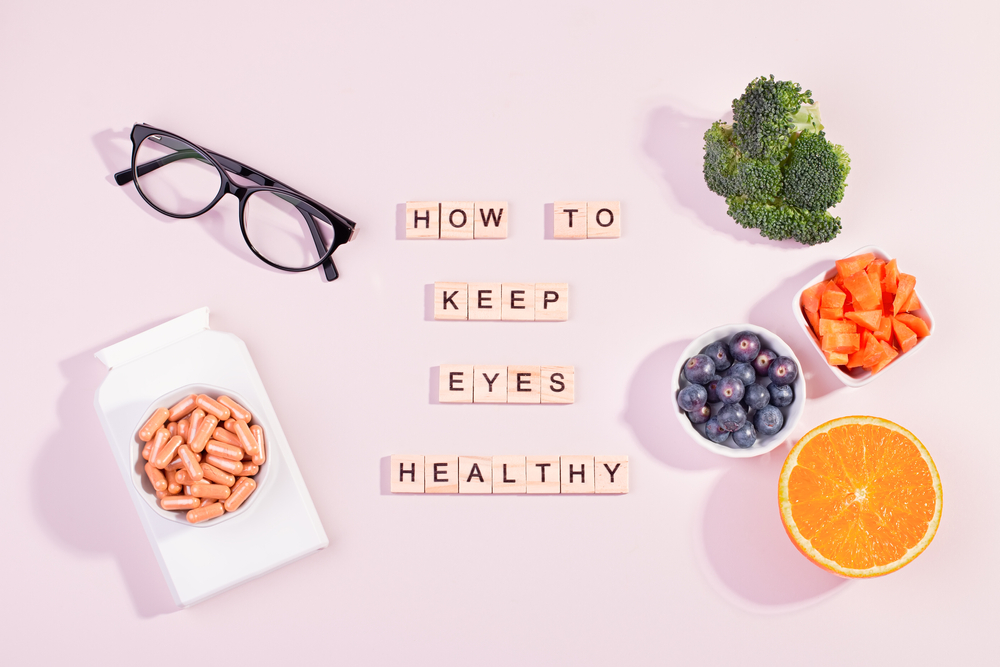Should I Take Vitamins If I Have Macular Degeneration?

By Rohit Adyanthaya, M.D., Virginia Eye Consultants
Yes! But only if you have intermediate age-related macular degeneration, and only if they’re the right vitamins.
Confused? Don’t worry, I’ll explain.
First, let’s talk about age-related macular degeneration (AMD). AMD is a disease where there is progressive damage to the macula, which is the central part of the retina. Individuals with AMD gradually lose their central vision, though peripheral (side) vision is not affected. For example, if a person with AMD is looking at a clock, the numbers will be clear but the hands will not.
By definition, AMD affects patients over the age of 50. It is more likely to affect people who are Caucasian, have a history of smoking or hypertension, and/or who have a family history of age-related macular degeneration. AMD is a growing public health challenge, impacting roughly 15 million people in the United States. In developed countries, AMD is the leading cause of severe, irreversible central vision loss.
In its early stages, AMD may not cause symptoms, but patients will notice decreased central vision as the condition progresses. There are two forms of AMD: dry and wet. Age-related macular degeneration always begins in the dry form, and its progression is categorized into early, intermediate, and advanced stages. Only about 10% of AMD patients progress to the wet form.

Now that you have a basic understanding of AMD, let’s talk about its management. Unfortunately, there is no cure for this condition, so the aim is to minimize progression of the disease and hopefully decrease vision loss. Therapies for Dry AMD include increasing antioxidants in diet, cessation of smoking, control of hypertension, and eye vitamins.
The right vitamins can be very helpful in slowing the progression of AMD. The Age-Related Eye Disease Study 2 (AREDS2), sponsored by the National Institute of Health (NIH), showed that supplementation with certain micronutrients can reduce the progression of dry AMD from intermediate to advanced stages (when vision loss occurs) by up to 25%.1
This AREDS2 formula contains:
- Vitamin C (500 mg)
- Vitamin E (400 IU)
- Lutein (10 mg)
- Zeaxanthin (2 mg)
- Zinc (80 mg)
- Copper (2 mg)
Again, it is important to remember that these supplements are not a cure for AMD, but they may help to slow the progression of the disease.
It is equally important to note that not all supplements marketed for age-related macular degeneration are the same. In fact, one NIH study found that a number of vitamins marketed for eye health did not contain the nutrient amounts stated on the label. Unfortunately, dietary supplements are not strictly regulated, so it’s up to consumers to educate themselves about how to choose the right supplements to meet their needs.
So, should you take vitamins if you have macular degeneration?
If you are interested in potentially slowing the progression of AMD, the right vitamins are a good place to start. However, you should discuss your condition and whether you are a candidate for AREDS2 vitamins first, and you should read labels carefully. Only purchase vitamins that truly adhere to the AREDS2 formula.
1 National Eye Institute. Nutritional supplements for age-related macular degeneration. Available: https://www.nei.nih.gov/learn-about-eye-health/eye-conditions-and-diseases/age-related-macular-degeneration/nutritional-supplements-age-related-macular-degeneration. Accessed May 28, 2020.